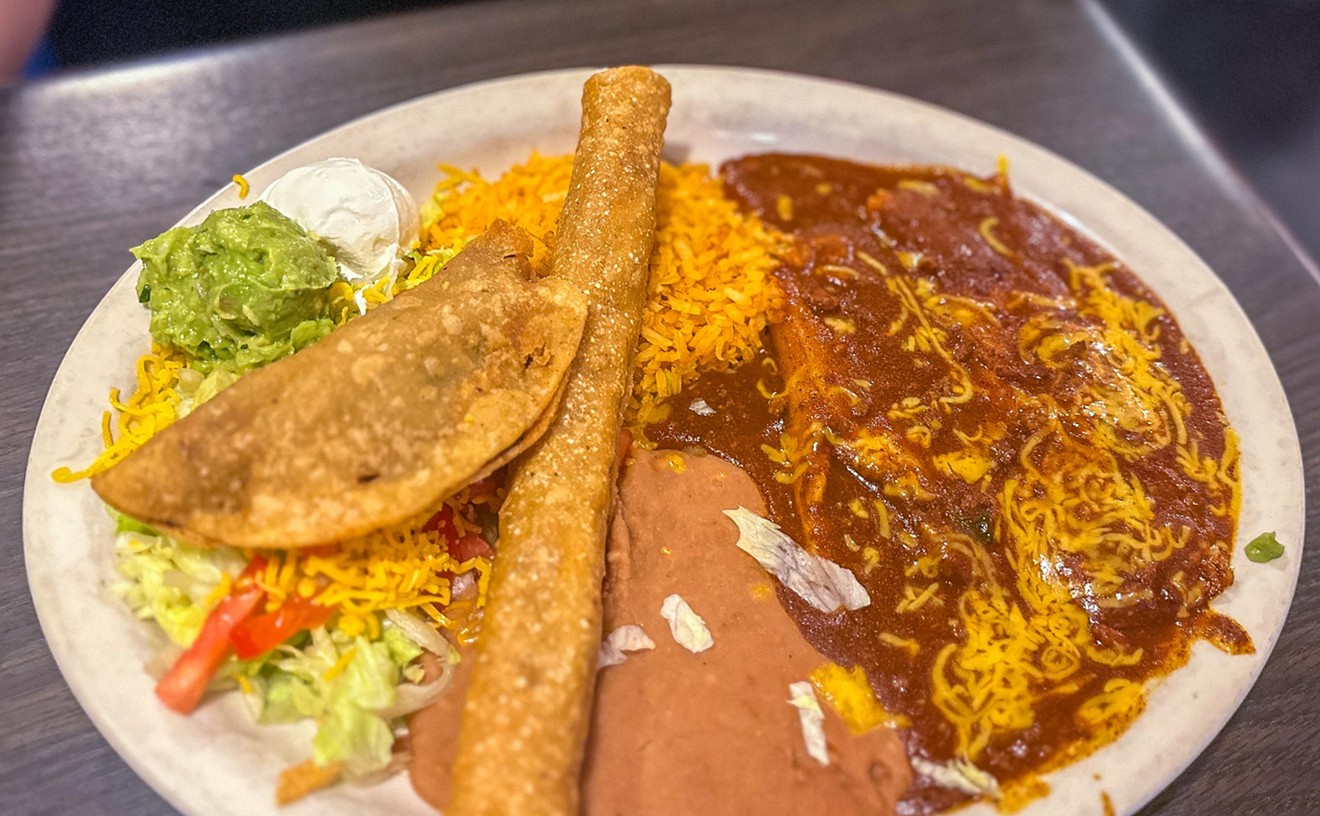Early this week, NBC 5 DFW reported that hundreds of Dallas restaurants have not been evaluated by city inspectors. The story cited an understaffed department, mismanagement and budget concerns for the failure.
Specifically, 241 restaurants that fall in the inspection department's jurisdiction have not been checked out for more than two years. That's about 4 percent of the 6,000 restaurants, bars and other fixed location food service businesses that serve Dallas every day. According to city guidelines, which are based on FDA recommendations, restaurants are supposed to be inspected twice every year.
I spoke with Code Compliance director James Childers, who was featured in the TV report, earlier this week to gain some perspective. If 4 percent of the restaurants have not been inspected at all in more than two years, does that mean the remaining 96 percent are up-to-date on inspections?
"The 241 restaurants were locations that we could not find any record of inspection for that time frame," Childers said. "Everything else had a record of inspection during that time frame." But that doesn't mean the other restaurants were inspected according to Dallas guidelines. In fact, only 20 percent of Dallas restaurant had been inspected twice in the last year according to a recent update to NBC's report.
I don't like the idea of hepatitis in my salsa, as the NBC report warned might happen, so I also asked Childers how many reports of food borne illness his department has handled in the past year. He told me in 2011, 117 complaints came to his department. Note these aren't confirmed cases of illness caused by a restaurant. These are just complaints that can be filed by anyone, ranging from "I saw a rat out back behind the Dumpster" to "Man, that potato salad really did a number on me."
So, how many complaints is that per meal served? I called Jack Perkins at Maple and Motor and asked him how many customers he serves a day. He said he averaged about 400. That's a lot of burgers! Then I called McDonald's on Lemmon Avenue and a manager told me they served about 300 people a day.
Since I don't have the time to call every restaurant in Dallas, I thought I'd throw City Hall a nice easy lob, and say that every business serves 100 people a day, 312 days a year (that's if they closed one day a week). With 6,000 restaurants you'd end up with 187 million meals served every year in Dallas.
Suddenly, receiving only 117 complaints sounds like a stellar accomplishment -- if you assumed that everyone who got a food-borne illness in Dallas called City Hall to complain about it after calling their doctors for treatment. You'd also have to assume that Code Compliance picked up the phone and logged all the complaints. And just because there aren't many complaints, doesn't mean our meals are safe.
NBC's report called Dallas' process a bogus food inspection program, but added that many large cities are having similar problems. Two years ago, Dallas had 23 inspectors, but layoffs and employes who have quit eliminated 10 of those positions. The inspection problems could be as much a resource problem as a management debacle.
With 13 inspectors on payroll, each would have to carry out five inspections a day to keep on top of every Dallas restaurant, assuming they take two weeks vacation, 10 holidays, and never get sick from eating the burgers they're inspecting. Is that a lot?
Childers said inspectors can handle four to five inspections a day (depending on the size and location of the restaurants) unless there are serious violations that require additional inspection and reporting. Inspectors also have to address complaints immediately, and violators have to be revisited to assure a restaurant has fixed any problem the inspectors find. Childers said he's hiring more staff, and job offers have been made to five new inspection officers and an additional supervisor to try to address the workload.
The biggest concern is the lack of consistency applied across the restaurants. If the city doesn't have the resources to keep up with existing guidelines, those guidelines should be revisited. Resources and workloads should be visited too.
I called the FDA to see what they thought about all this. Siobhan Delancey, spokesperson for the agency's Office of Public Affairs, told me their published regulations are only model legislation. Local municipalities can interpret them as they see fit. But while the FDA prints hundreds of pages on how to inspect a restaurant, it doesn't offer any official guidance on how to prioritize which restaurants to inspect when resources become tight.
Fort Worth has 13 inspectors that have to cover 2,100 restaurants, though their inspections include other potential health and safety issues at food trucks and special events. Their inspectors use a risk-based model to prioritize their inspections. Fast food restaurants and other establishments that assemble prepackaged food are considered less risky than restaurants that handle raw meats, so they don't get inspected as often.
Childers told me that while they attempt to inspect every food establishment twice annually regardless of how they prepare their food, they prioritize by focusing inspections on schools and other establishments that serve high-risk populations (children in particular) and locations that have received complaints or scored poorly in a previous inspections.
While they are looking similar sized cities that utilize the risk-based approach, Childers says it is too early in the process to say whether or not they will adopt this type of model.










